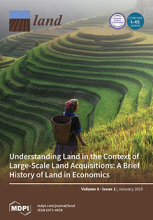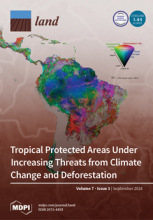Land Library Search
Through our robust search engine, you can search for any item of the over 73,000 highly curated resources in the Land Library.
If you would like to find an overview of what is possible, feel free to peruse the Search Guide.
/ library resources
Showing items 1 through 9 of 22.Over the past several decades, land investments have dramatically increased to meet global food and biofuel demands, produce industrial commodities, protect environments and develop urban centres.
The process of urbanization in China has been accompanied by the conflict of land expropriation, which is not conducive to social stability.
In many cities and urban areas in Africa, land acquisition for urban redevelopment, land readjustment, and resettlement of affected urban residents are currently framed as innovative approaches to eradicating informal settlements, improving the living environments, and supporting the implementati
The Voluntary Guidelines on the Responsible Governance of Tenure (VGGT) call for governments to clearly define the term ‘public purpose’ to allow for judicial review of the goals of expropriations of property.
Uganda’s oil and gas sector has transitioned from the exploration phase to the development phase in preparation for oil production (the operations phase).
The expansion of oil palm plantations in Papua province, Indonesia, involves the conversion of forests, among other land types in the landscapes, which are a source of clan members’ livelihoods.
The recent global surge in large-scale foreign land acquisitions marks a radical transformation of the global economic and political landscape. Since land that attracts capital often becomes the site of expulsions and displacement, it also leads to new forms of migration.
In economics, land has been traditionally assumed to be a fixed production factor, both in terms of quantity supplied and mobility, as opposed to capital and labor, which are usually considered to be mobile factors, at least to some extent.
Recently, we witnessed an immense increase in international land transactions in the Global South, a phenomenon slowly expanding in northern industrialized countries, too.








